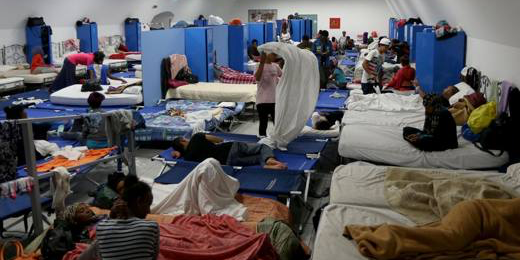Diakitè v. Italia, No. 44646/17, ECtHR, First Section, 14 September 2023

On 14th of September 2023, the European Court of Human Rights, in its judgment Diakité v. Italy no. 44646/17, condemned the Italian Republic in favor of an Ivorian boy for violating Article 8, which guarantees the right to respect for private and family life, and Article 3, which prohibits inhuman and degrading treatment.
The facts of the case relate to the applicant's arrival in Italy on 29 January 2017 aboard a makeshift boat. After arriving on the Italian coast, the young man was transferred to the Trapani hotspot. Upon arrival, he had declared to the competent Italian authorities that he was a minor and had presented his birth certificate, which clearly stated his date of birth as 19 December 1999. Nevertheless, the applicant was required to undergo a medical examination which concluded that his bone age was compatible with that of a person of at least eighteen years of age. As a result, the Italian Authorities transferred the young migrant to the Red Cross center for adults in Rome.
Following an appeal to the European Court of Human Rights, the child was placed in a children's home, where he underwent another medical examination, which revealed that he was between 17 and 18 years old. Considering the margin of error of the bone examination, the presumption of minority was applied.
The European Court of Human Rights questioned whether the national authorities had guaranteed the procedural rights deriving from the status of unaccompanied minor seeking international protection.
According to the Court, the European and international legal framework provides adequate guarantees for the unaccompanied minor asylum seeker, including the appointment of a legal representative or guardian, access to a lawyer and informed participation in the procedure to determine the age of the person whose age was in doubt.
In the present case, the Court found that, because of shortcomings in procedural guarantees, the applicant was not provided with the necessary means to lodge an asylum application after his arrival in Italy and was detained for more than four months in an overcrowded adult detention center. The judges of the European Court of Human Rights also noted the disregard of the results of the assessment of the Ivorian boy's age and the lack of information provided to the applicant on the nature and outcome of the procedure.
Although the determination of a person's age may be a tool in cases of doubt as to his or her minority, sufficient procedural safeguards must be ensured. In the present case, the Italian authorities had not applied the principle of the presumption of minority, which is an essential element of the protection of the right to respect for the private life of an unaccompanied person claiming to be a minor. The applicant had not benefited from the minimum procedural guarantees and his placement in a reception center for adults had undermined his right to personal development and to establish and develop relationships with others. This could have been avoided, according to the Court, if he had been placed in a specialized center or with foster parents, measures more favorable to the child's best interests.
On these grounds, Italy was condemned for violating Articles 8 and 3 of the European Convention on Human Rights.
(Comment by Alessandro Cupri)

